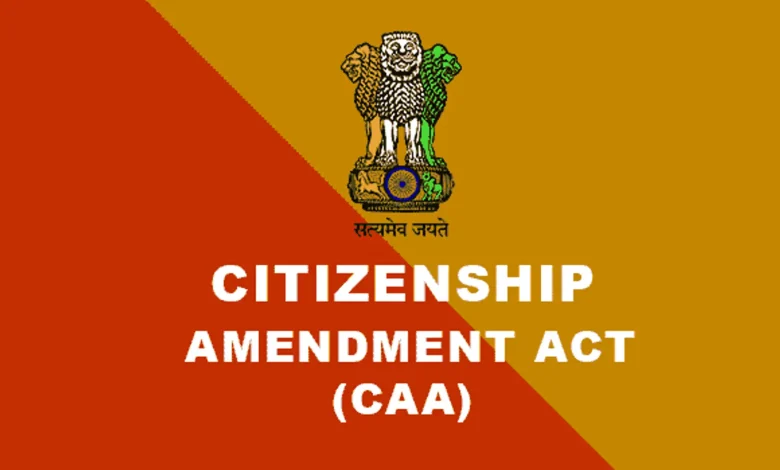Everything you need to know about the Citizenship (Amendment) Act, 2019

After 4 years, the Citizenship (Amendment) Act or CAA on 12 March, Monday, was implemented by the government of India. The CAA law states to grant Indian Citizenship to non-Muslim refugees who migrated to India from Pakistan, Afghanistan, and Bangladesh because of religious persecution.
The CAA law will provide refugees with a shield against the illegal migration process. Refugees who arrived in India before 31 December 2014 are eligible for citizenship.
What is the new caa law in india?
After numerous controversial debates, the Modi government has declared the implementation of the CAA Act 2019. Under this law, the people would be given Indian Citizenship, who had arrived in India before 31 December 2014. Those non-Muslims, namely Hindus, Jains, Sikhs, Buddhists, Parsis, and Christians would now be receiving the tag of Indian nationality, who were religiously persecuted by the neighboring countries – Pakistan, Afghanistan, and Bangladesh.
What are the caa rules and regulations?
The law will give Indian Citizenship to refugees but there are some exceptions in caa rules and regulations. The amendment is not applicable to autonomous tribal-dominated areas in Assam, Meghalaya, Tripura, and Mizoram. This means migrants from Pakistan, Afghanistan, and Bangladesh living in these areas will not be provided Indian Citizenship.
Also the same goes for the states with an inner-line permit (ILP) regime – primarily in North-East India. ILP is a special permit given to enter and stay in Arunachal Pradesh, Mizoram, Nagaland, Manipur, Lakshadweep, and Himachal Pradesh, to non-residents for a limited time.
The caa news has raised several opinions be it positive or negative. Since 2019, the opposition has been coming up with theories against the law. However, to protect the non-Muslim migrants who arrived from Pakistan, Afghanistan, and Bangladesh, the caa rule was necessary. The refugees are rejoiced with citizenship amendment rules 2024 as now they are a proud Indian citizen.




